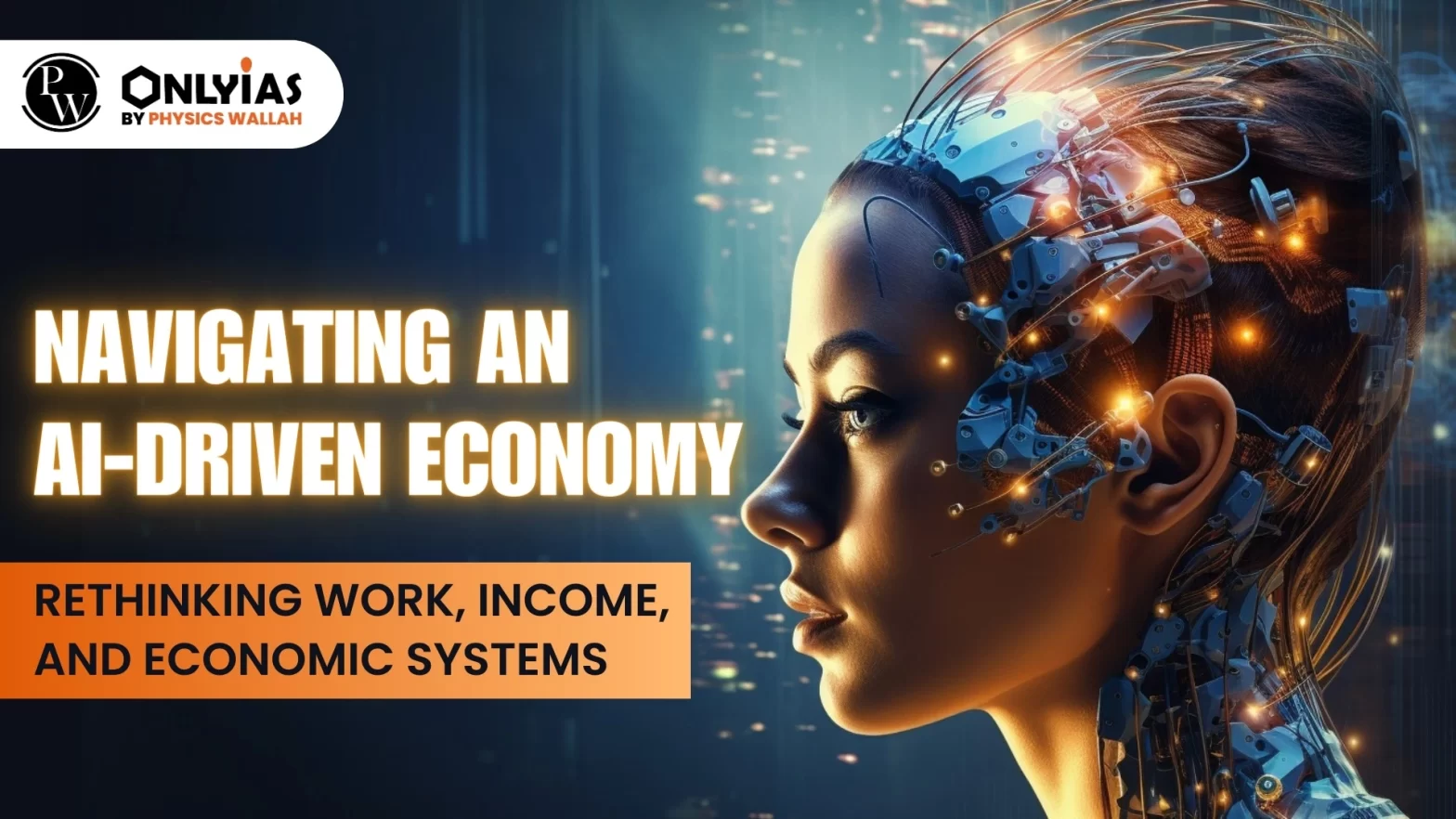Context:
- This article is based on an Editorial “The economy of a world without work” which was published in the Times of India. At the recently concluded Bletchley Park Summit on Artificial Intelligence (AI), Elon Musk highlighted the disruptive potential of AI, by stating that AI would substitute for all human labor — both physical and cognitive — and hence individuals would face no pressing need for a job, but would only seek work for personal fulfillment.
| Relevancy for Mains: Artificial Intelligence.
Relevancy for Mains: AI-driven economy, and Challenges of AI. |
Economic Thoughts On The Need For Work
- The history of economic thought reveals different ways in which a human’s relation with work has been theorized.
- John Maynard Keynes: He was a liberal thinker and theorized that technological change under capitalism would eventually lead to a reduction in working hours.
- Karl Marx: For him, the essence of humanity lies in the ability to materially manipulate nature; work therefore provides meaning to human life.
- The ideal state is not one where AI replaces human labor, but where individuals can utilize AI to enjoy and elevate their work, without it being appropriated by someone else.
What challenges does AI pose to the economy?
- Neglection: The views of the above thinkers reveal an important problem in the current discussions around AI i.e., the neglect of the economic system.
- Current Scenario: Assume a situation where AI has advanced to the point that it is capable of substituting all kinds of labor. Under the current system of capitalism, the only way an individual can access material resources such as food and shelter is through income derived from work.
- Implication of the Thought: In such a system, a world without work does not imply a world without hard work, but one where individuals who cannot find work cannot access basic resources.
The Path Ahead for the Challenges of AI
- Job Availability: While AI may substitute for certain jobs, it generates new jobs in turn, for instance, AI programmers.
- A Different Reality: It is a world with very different institutional arrangements regulating production and distribution, one where a universal basic income is a major source of income and not wage labor.
- Need to Remember Challenges: The world economy will face disruptions, and it is imperative to fully understand the nature of these challenges. The impact of technological innovations cannot be seen in isolation from prevailing economic institutions.
- Need for a Skilled Human Resource: Every country around the world needs to invest in human resources to achieve positive results with the transforming economic situation and the World.
Also Read: AI Summit London 2023 – How to Make Artificial Intelligence Responsible
Conclusion:
In navigating an AI-driven economy, recognizing the imperative of rethinking work, income, and economic systems is essential to address the challenges of AI, ensuring a future where technological advancements coalesce with societal well-being through innovative solutions such as universal basic income and sustained investment in skilled human resources.
![]() 15 Nov 2023
15 Nov 2023
